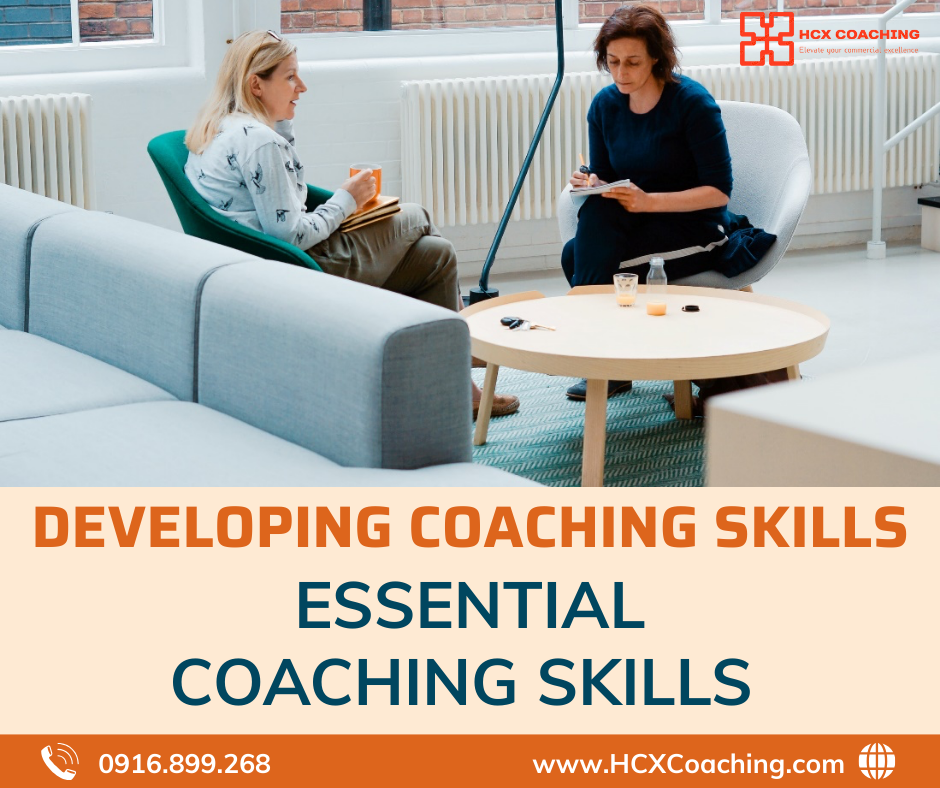Essential Coaching Skills: Insights from Dietmar Sternad’s “Developing Coaching Skills”
Essential Coaching Skills: Insights from Dietmar Sternad’s “Developing Coaching Skills”
Essential Coaching Skills
The book Developing Coaching Skills: A Concise Introduction (Dietmar Sternad, 2021) shows that to become an effective coach, one must master a set of essential skills. These skills not only improve the quality of coaching sessions but also help create positive and sustainable changes for the coachee.Coaching Mindset
The coaching mindset is the foundation. An effective coach develops an attitude of collaboration and support, while trusting that the coachee has the ability to find their own solutions. Coaching is not about imposing answers but about accompanying the coachee, focusing on the future, and opening up new possibilities. The concept of a forward-looking cognitive state highlights the importance of looking ahead and staying goal-focused instead of being limited by the present.
Questioning Skills
Asking questions is at the core of coaching. Key principles include:
- Apply the TED model (Tell me…, Explain…, Describe…) to encourage the coachee to share more deeply.
- Use open-ended questions that are simple yet thought-provoking, e.g., “Can you tell me more about that situation?”
- Avoid “Why” questions (which may sound judgmental), leading questions, or asking multiple questions at once.
- Frame questions in a solution- and future-oriented way, helping the coachee move from describing problems toward exploring ways forward.
Active Listening Skills
Active listening is essential for an effective coaching session. The coach must give full attention, avoid distractions, and provide signals that show the coachee they are truly being heard. Techniques such as nodding, paraphrasing, or taking notes can reinforce this. The coach should avoid interrupting, finishing sentences for the coachee, or adding personal opinions too early. Clarifying questions are useful but should be asked sensitively.
Summarizing Skills
Summarizing is a crucial transition in coaching. It provides multiple benefits:
- Makes the coachee feel fully listened to.
- Allows them to see the whole picture and form new links, associations, and insights.
- Refocuses attention on the goal.
- Provides a moment for reflection before moving into the next stage of the conversation.
- An effective summary is concise, clear, and accurately reflects what was discussed, without adding interpretation or judgment.
- Raising the coachee’s self-awareness.
- Helping the coachee maintain a positive emotional state.
Constructive Feedback Skills
To make feedback constructive, the coach should:
- Keep a neutral tone and avoid judgment.
- Refrain from using negatively loaded words.
- Ask open-ended questions to encourage the coachee to reflect.
- Link feedback to the coachee’s goals.
- Help the coachee maintain a positive emotional state.
- Support the coachee in becoming more aware of others and the wider context.
Dealing with Emotions
Emotions often play a strong role in coaching conversations. A coach should be able to help coachees handle emotions constructively.
1. How to deal with strong negative emotions?
- Explore the emotion together with the coachee.
- Take a time-out to reflect on the emotion.
- Refer the coachee to a specialist if needed.
2. Help coachees get out of a victim mindset
- Instead of only sympathizing, acknowledge the feelings but then move forward in a goal-oriented way, focusing on solutions.
3. Use the AAA Exercise
- Accept – Identify the emotion.
- Allow – Feel the emotion.
- Ask – Reflect: What is the emotion telling me?

Register to download documents
